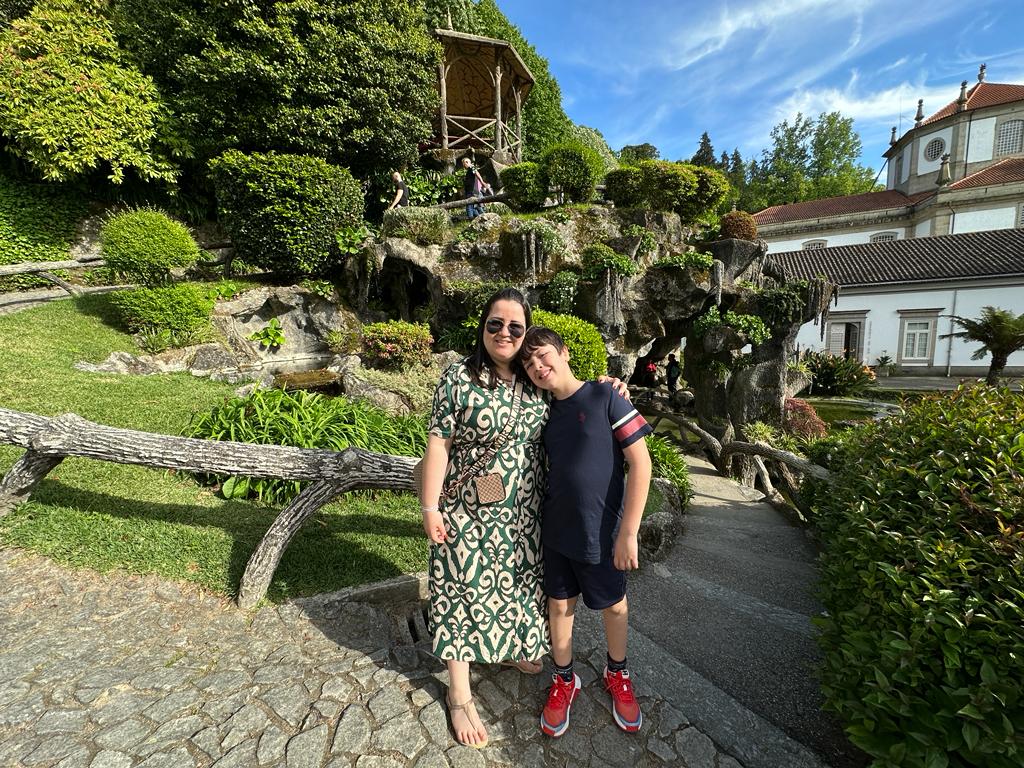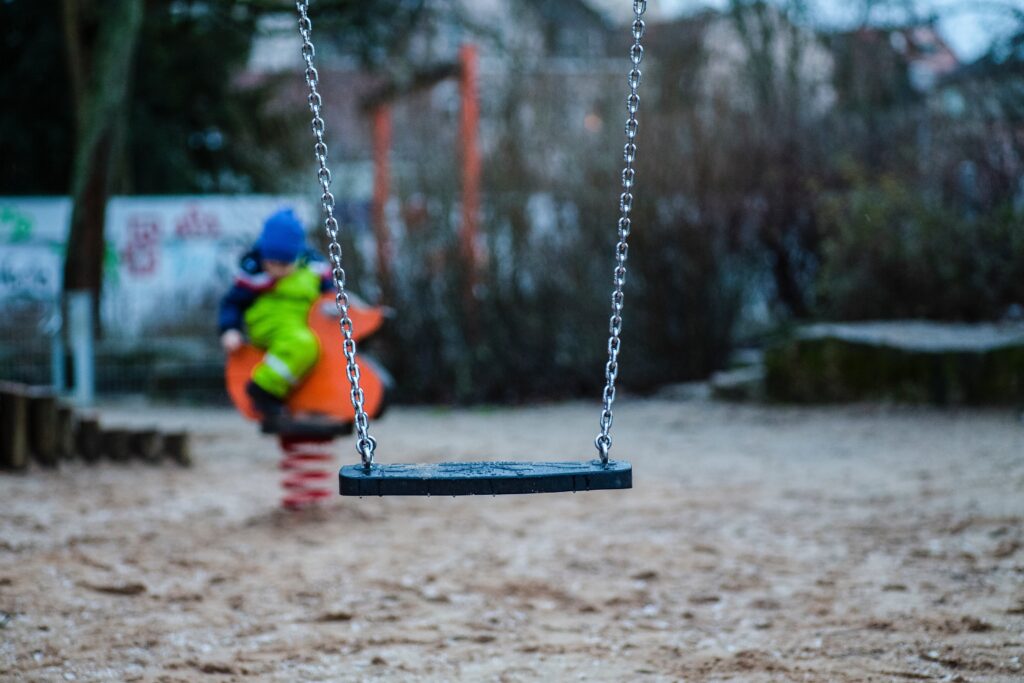During the summer, when children are off school, while many families plan their holidays, others struggle with the rise in prices, lack of childcare support and network. A migrant mother full-time worker discusses it through her personal experience and academic background.
by Revilla Martins dos Santos
Every year, when the summer arrives and children are off school for eight weeks, many families, especially mothers, ask themselves: what to do with children and young people for such a long time?
Research by the Scottish Women’s Budget Group demonstrated that women in Scotland suffer increasing hardship, destitution, and food insecurity due to a lack of support during the cost-of-living crisis.
The charity Money Advice Trust found that 45% of families with children were reported to be in debt.
Migrant Women Press reported on how vulnerable women, especially asylum seeker mothers, are impacted by the cost of living crisis.
Many families will not go on holiday this summer.

Aaron Burden @Unsplash
The Oxford English Dictionary describes the word ‘Price’ as noun 1: the amount of money expected, required, or given in payment for something, e.g.: ‘’land could be sold for a higher price’’. Noun 2: an unwelcome experience or action undergone or done as a condition of achieving an objective, e.g.: ‘’the price of their success was an entire day spent in discussion’’.
In this article, I will discuss how both terms are connected towards childcare in Scotland in the eyes of a migrant mother and a full-time worker. Noun 1, e.g.: ‘’With the cost-of-living crisis, the cost of childcare is at a higher price compared to last summer’’. Noun 2, e.g.: ‘’The price we – immigrant woman- pay for living abroad, far from our family and culture’’.
The drama and stress of childcare are not new for migrant women, as it is challenging to live abroad without a family and a supportive and emotional network.
I was quoted £33 a day to let my ten years old son in a private summer club from 8 am to 6 pm. This makes £1320 for the entire summer holidays, whereas the minimum wage for over 23 years old after taxes is £1333.
Vidal-Coso (2019) explains that natives often rely on the provision of their family arrangement, a valuable childcare resource; however, migrant families are more reliant on formal and expensive childcare solutions.
In the area where I live, in the central belt of Scotland, near Glasgow, I was quoted £33 a day to let my ten years old son in a private summer club from 8 am to 6 pm. This makes £1320 for the entire summer holidays, whereas the minimum wage for over 23 years old after taxes is £1333.
With these figures in mind, a mother earning the minimum wage should work half a month only to afford childcare for only one child. If it is two or more children, it should be the total salary for childcare during the summer holidays.
I found a more affordable solution with South Lanarkshire Council, where I could find some dates paying £95 a week. However, the hours for this option are not very flexible, as they only offer hours from 9 am-2 pm, still better than nothing.

Revilla and her son Arthur
Thanks to my flexible job and requiring only one day in the office, I can manage my workload; my partner can drop my son at the club; I can pick him up at 2 pm and work from home for the rest of the day. I understand my atypical and fortunate situation, as I can work around the summer clubs and afford to pay for these activities.
This article does not look to make the ‘war’ between ‘us and them’ even worse; it seeks to address social issues such as the affordability of childcare for working and non-working migrant women.
Like most migrant women, I do not have family support to help me. My son does not have grandparents or other family members to spend the summer with. All I can rely on to care for my boy is myself, my partner and some friends, which I can not thank enough for their unconditional support when getting my messages saying: “Please, are you free to look after Arthur?”
I understand that many Scottish women face the same issue, with the lack of networking for childcare and how challenging it is for all women to raise a child. That is why more needs to be done to achieve a more equal society.
Like most migrant women, I do not have family support to help me. My son does not have grandparents or other family members to spend the summer with.
Is child poverty inevitable?
The labour market subdivision and lower returns to education for foreign-born women raise their chance of being out of the labour force, reducing their social integration in the host societies.
Living in Britain for over a decade has allowed me to meet many amazing women from around the world.
Most of them had a career before moving to Scotland; however, with childcare challenges when moving here, they ‘’choose’’ (as if they have another option) to stop working and become full-time mothers.
Pettman (1999) outlines that women as employees have long been trapped concerning productive and reproductive responsibilities in a way that causes limitations to them in the labour market.
That market is fragmented by outlines of nationality, race/ethnicity, gender, and often age, as well as class. International processes, including colonisation and migration, have created these divisions within states.

Markus Spiske @Unsplash
The struggle for migrant women is real, and the government should be dealing with problems like the lack of childcare for everyone, in particular for the ones who do not have the option of letting their children with reliable family members.
In an equal society where everyone has rights and duties, the government should have the duty of providing affordable childcare.
The state should look after the children going hungry this summer. A 2023 report by Trussell Trust, ‘Hunger in Scotland‘, reveals that families with children are overrepresented in those who turn to food banks. Again, this shows the higher risk of poverty just for being a woman with children.
If Scotland aims to be a nation where rights and equality are at the heart of every action, it needs to treat its women and children better, especially the ones in vulnerable situations.
Scotland’s government rhetoric of a fair and equal society needs to go beyond words.
If Scotland aims to be a nation where rights and equality are at the heart of every action, it needs to treat its women and children better, especially the ones in vulnerable situations.
References:
- Vidal-Coso, E. 2019. Female employment following childbirth: differences between native and immigrant women in Switzerland. Journal of Ethnic and Migration Studies. 45 (9), pp.1668-1692.
- Pettman, J.J. 1999. Globalisation and the Gendered Politics of Citizenship. In: N. Yuval-Davis and P. Werbner (eds), Woman, Citizenship and Difference. London: Zed, pp.207-220.

Revilla Martins dos Santos is a migrant woman, and mother of one 10-year-old boy, Arthur. She is a full-time worker for The Robertson Trust (TRT), where she is involved in Equity, Diversity, Participation, Rights (EDPR) and Work Pathways programmes. Within EDPR she is currently working on a project towards Advancing Racial Justice in TRT. She is a 2027 Associate, at an organisation that seeks to put working-class people and minorities into the Grantmaking sector. Revilla is also a Trustee for the charity Women Integration Network which supports migrant, asylum seeker and refugee women. Revilla has an honours degree in Community Development from the University of Glasgow. She is originally from Brazil but calls Scotland home since 2012



